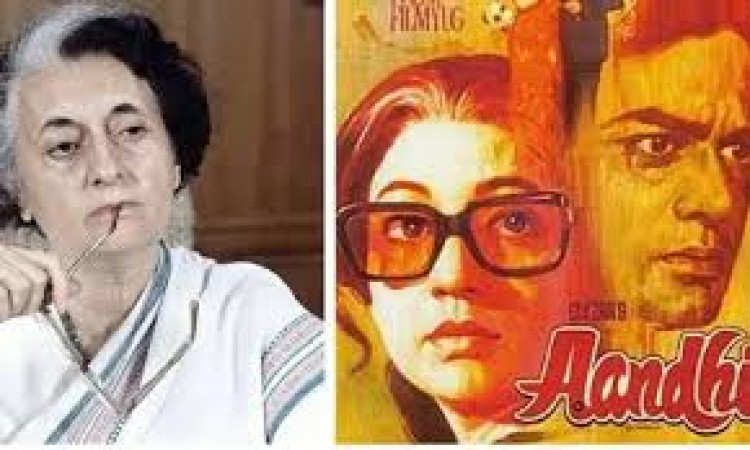
Cinema has always served as a mirror reflecting societal realities, and occasionally these reflections spark debates that have an impact well beyond the confines of the screen. One such example is the Gulzar-helmed 1975 film "Aandhi." The movie, which tells a story of love and politics, became embroiled in controversy because some people thought the lead actress resembled Indira Gandhi, who was the prime minister at the time. 'Aandhi's' turbulent journey from being outlawed to its eventual release is examined in this article, which emphasizes the importance of artistic expression and the challenges of creative freedom.
Aarti Devi, played by Suchitra Sen, is a strong-willed and ambitious woman who enters politics, and the plot of "Aandhi" revolves around her. Her past love affair and her political ambitions are intertwined in the story, weaving an emotional tapestry against the backdrop of political unrest. The Gulzar-directed movie, in which Sanjeev Kumar plays the lead role, explores the nuances of private desires and civic duties.
The lead character in the movie "Aandhi," which was released at a sensitive political time, was remarkably similar to Indira Gandhi, who was the prime minister at the time. The portrayal gave rise to widespread rumors that the movie was making a covert political statement, which sparked debate and concerns about possible defamation. In order to prevent the situation from getting worse, the Central Board of Film Certification (CBFC) decided to outlaw the movie.
Political censorship, artistic freedom, and the fine line between free expression and social responsibility are all relevant issues that were brought up by the ban on "Aandhi." The intention of the movie, according to filmmakers and artists, was not to denigrate or disparage anyone, but rather to examine the complexity of human emotions in a political setting. The incident brought to light the difficulties in accurately representing reality on screen while navigating the delicate nature of real-world politics.
Discussions and debates in the public, both inside and outside the film industry, were sparked by the ban on "Aandhi." Intellectuals, artists, and critics spoke out against restrictions on artistic expression and in favor of artistic freedom. The film community came together to defend the freedom of filmmakers to experiment with various narratives without being concerned about censorship.
A significant victory for artistic expression was achieved when the ban on "Aandhi" was eventually lifted amid increasing pressure. The movie was well received by critics and proved once again that cinema can tell thought-provoking stories while adhering to the rules of decency and responsibility. Despite the controversy, "Aandhi" proved that the artistic merit, storytelling, and performances ultimately won out.
The 'Aandhi' controversy serves as a constant reminder of the complex interaction between cinema and the socio-political environment. It emphasizes the value of free speech, artistic expression, and the contribution of film to reflecting and questioning social norms. Filmmakers were left with a lasting impression from the incident, which served as a reminder of the value of nuanced storytelling when navigating a diverse and changing society.
The journey of "Aandhi," from its ban to its release, captures the spirit of creative freedom and the challenges of accurately representing reality on screen. The movie is evidence of how cinema can influence public opinion and shows how difficult it is to strike a balance between storytelling and social awareness. Aandhi not only survived the storm of controversy, but it also triumphed in artistic expression, ultimately enhancing the cinematic landscape and pushing the limits of creative freedom.
Bollywood's Grand Gala: 'Naseeb' (1981) and the Unforgettable 'John Jani Janardhan'
From Hollywood to Bollywood: 'Abhimaan' (1973) Weaves Indian Dreams Inspired by 'A Star Is Born'
'Mera Joota Hai Japani' Surprises Audiences in Deadpool's Opener